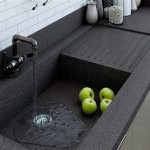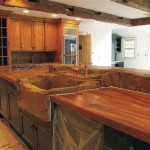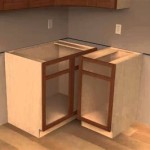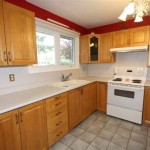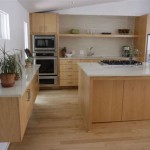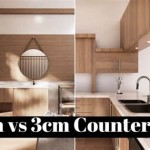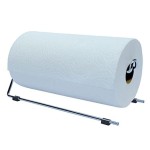Best Countertops For Rental Property: Balancing Durability, Aesthetics and Budget
Selecting the right countertops for a rental property is a crucial decision for landlords and property managers. The ideal countertop material will strike a balance between durability, aesthetic appeal, affordability, and ease of maintenance. Countertops are a high-traffic area, subject to spills, impacts, and general wear and tear. Choosing materials that can withstand these challenges while remaining attractive and budget-friendly is essential for maximizing the return on investment and minimizing long-term maintenance costs.
The considerations for countertops in a rental property differ slightly from those for a personal residence. The primary goal is not necessarily to achieve the most luxurious or trendy look, but rather to choose a material that is reliably functional, visually acceptable to a broad range of tenants, and cost-effective to replace or repair should damage occur. Furthermore, installation costs and the impact on vacancy periods should be carefully considered when making the final selection. This article will explore several countertop options suitable for rental properties, weighing the pros and cons of each in terms of these key factors.
Durability and Maintenance Requirements
Durability is arguably the most important factor when selecting countertops for a rental property. Tenants may not always treat the property with the same care as homeowners, making it crucial to choose materials that can withstand heavy use and potential abuse. Resistance to scratches, stains, heat, and impact are all critical considerations. Materials like natural stone (granite), while durable, can be porous and require regular sealing to prevent staining. Other materials, such as laminate, are less resistant to heat but are relatively impervious to staining and are easy to clean.
Maintenance requirements are also closely linked to durability. Countertops that require frequent sealing, specialized cleaning products, or professional repairs can add significant costs and inconvenience over time. The ideal rental property countertop should be easily cleaned with common household products and require minimal upkeep. Simple cleaning reduces the likelihood of long-term damage and maintains a clean and presentable appearance for future tenants.
The frequency of potential repairs or replacements directly impacts both the financial bottom line and the potential for lost rental income. A countertop that chips easily, stains readily, or requires specialized care will inevitably lead to increased maintenance expenses and potentially longer vacancy periods while repairs are being made. Selecting a resilient and low-maintenance material is therefore a strategically sound investment in the long-term profitability of the rental property.
Cost-Effectiveness and Budget Considerations
Budget constraints are a reality for most rental property owners. While it may be tempting to opt for the cheapest option, it is essential to consider the long-term cost-effectiveness of the countertop material. A very inexpensive countertop may have a shorter lifespan or require more frequent repairs, ultimately costing more than a slightly more expensive, more durable option. Installation costs must also be factored into the overall budget. Some materials, such as solid surface, require professional installation, while others, such as laminate, can often be installed DIY to save on labor costs.
The cost of the countertop material itself is only one component of the overall budget. The cost of underlayment, adhesives, sealants, and any necessary tools should also be considered. Furthermore, the potential for future repairs or replacements should be factored into the equation. A slightly more expensive countertop that is less likely to require replacement in the near future may ultimately be a more cost-effective choice than a cheaper option that needs to be replaced every few years.
It is also important to consider the target demographic of the rental property. In a high-end rental, tenants may expect more luxurious finishes, justifying a higher investment in countertops. However, in a more budget-conscious rental, a more affordable countertop option may be perfectly acceptable. Matching the countertop choice to the overall aesthetic and price point of the rental is essential for maximizing its appeal to potential tenants.
Aesthetic Appeal and Tenant Preferences
While durability and cost-effectiveness are paramount, aesthetic appeal should not be completely overlooked. The countertops are a prominent feature of the kitchen and bathroom, and their appearance can significantly impact the overall impression of the rental property. A modern, clean, and well-maintained countertop can attract higher-quality tenants and justify a higher rental rate. However, it is important to choose a style that is broadly appealing and not overly trendy, as trends can quickly become dated.
Neutral colors and simple designs are generally the best choice for rental property countertops. Colors such as white, gray, and beige are versatile and can complement a variety of decorating styles. Avoid overly bold or unusual patterns that may not appeal to all tenants. A countertop that looks clean, modern, and well-maintained will create a positive impression and enhance the overall appeal of the rental property.
It is also important to consider the overall aesthetic of the kitchen or bathroom when selecting countertops. The countertops should complement the cabinets, flooring, and appliances to create a cohesive and visually appealing space. The goal is to create a space that is both functional and aesthetically pleasing, attracting tenants who are willing to pay a premium for a well-maintained and attractive rental property. A balance between aesthetics and practicality is essential for maximizing the rental property's appeal and profitability.
Common Countertop Materials for Rental Properties
Several countertop options are commonly used in rental properties, each with its own advantages and disadvantages. These include laminate, tile, solid surface, granite, and quartz. Each material offers a different balance of durability, aesthetics, and cost-effectiveness. By carefully weighing the pros and cons of each option, landlords and property managers can make an informed decision that meets their specific needs and budget.
Laminate: Laminate countertops are one of the most affordable options, making them a popular choice for budget-conscious rental property owners. They are relatively durable and easy to clean, with a wide variety of colors and patterns available. However, laminate is susceptible to scratches, heat damage, and water damage if the seams are not properly sealed. It also lacks the high-end look of more premium materials. Despite these drawbacks, laminate remains a viable option for many rental properties due to its low cost and ease of installation.
Tile: Tile countertops offer a durable and relatively inexpensive option for rental properties. Tile is resistant to heat and water damage and comes in a wide variety of colors and styles. However, tile countertops can be difficult to clean due to the grout lines, which can trap dirt and grime. The grout can also be prone to cracking and staining. In addition, tile countertops can be prone to chipping if heavy objects are dropped on them. While tile can appear attractive, the maintenance requirements can deter some tenants.
Solid Surface: Solid surface countertops, such as Corian, are a mid-range option that offers a good balance of durability, aesthetics, and cost. Solid surface is non-porous, stain-resistant, and easy to clean. It can also be repaired relatively easily if it is scratched or damaged. Solid surface countertops are available in a wide range of colors and patterns. However, solid surface is not as heat-resistant as some other materials, such as granite or quartz, and can be susceptible to scratches if not properly cared for.
Granite: Granite countertops are considered a premium option, offering exceptional durability and a high-end aesthetic. Granite is resistant to heat, scratches, and stains, and is available in a wide variety of colors and patterns. However, granite is also one of the most expensive countertop materials, and it requires regular sealing to prevent staining. In addition, granite can be prone to chipping or cracking if heavy objects are dropped on it. While granite can significantly enhance the value of a rental property, its high cost may not be justified in all cases.
Quartz: Quartz countertops are an engineered stone product that offers a good balance of durability, aesthetics, and cost. Quartz is non-porous, stain-resistant, and easy to clean. It is also more resistant to scratches and chips than granite. Quartz countertops are available in a wide range of colors and patterns, many of which mimic the look of natural stone. While quartz is more expensive than laminate or tile, it is generally less expensive than granite. Quartz is an excellent choice for rental properties seeking a durable and aesthetically pleasing countertop option that is relatively low maintenance.
Installation and Replacement Considerations
The ease of installation and replacement should also be carefully considered when selecting countertops for a rental property. Some materials, such as laminate, can be relatively easy to install DIY, saving on labor costs. Other materials, such as granite or quartz, typically require professional installation. The installation process can disrupt tenants and potentially lead to lost rental income, so it is important to choose a material that can be installed quickly and efficiently.
The ease of replacement is also an important consideration. If a countertop is damaged beyond repair, it is important to be able to replace it quickly and easily to minimize disruption to tenants. Some materials, such as laminate, are relatively easy to replace, while others, such as granite, can be more challenging and expensive to replace. Choosing a readily available and easily replaceable material can save time and money in the long run.
The potential for damage during installation or replacement should also be considered. Some materials are more prone to chipping or cracking during installation or replacement than others. It is important to choose a material that is relatively easy to handle and less likely to be damaged during the installation or replacement process. This will minimize the risk of additional expenses and delays.

Choose The Right Countertops For Your Houseflip

20 Ideas For Kitchen Counter Updates Extra Space Storage

Granite Vs Quartz Find The Perfect Countertop For Your Space

How To Choose The Right Countertops For Your Tuscaloosa Home

The Kitchen Counter Challenge New York Times

Time To Experience The Best 1 Kitchen Countertops For Your Home

Match Your Kitchen Countertop And Backsplash At Henry Tile

Kitchen Countertop Trends In 2025 Marble Com

Outdoor Kitchen Countertop Ideas Livingetc

Are Granite Countertops Out Of Style New Rivals Challenge A Classic
See Also

